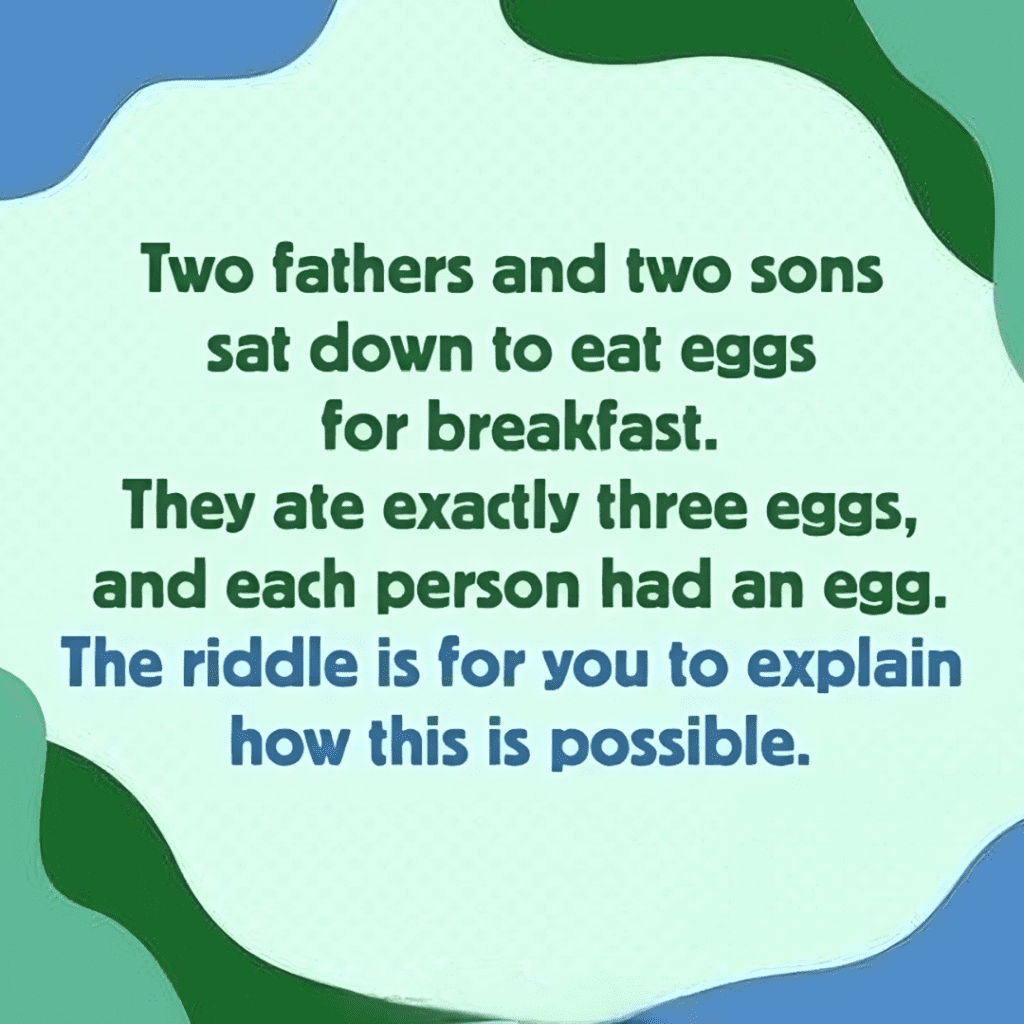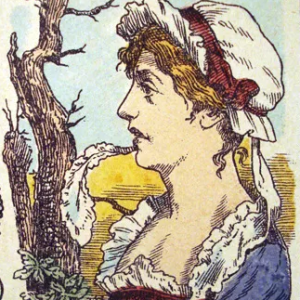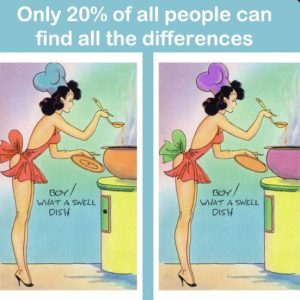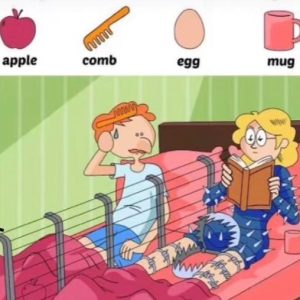At first glance, the idea of two fathers and two sons sitting down for breakfast and eating exactly three eggs seems like a puzzling scenario. How could each person have a single egg if there are only three eggs on the table? This simple riddle has stumped many, but once you understand the clever twist, it becomes a delightful exercise in lateral thinking. Let’s dive in and explore how this mathematical conundrum is actually possible.
Breaking Down the Riddle: An Apparent Contradiction

The riddle states that two fathers and two sons sit down to eat three eggs, and each of them has one egg. Initially, this doesn’t seem possible—how can three eggs be shared among four people without someone missing out? At first glance, it looks like a classic case of not having enough to go around. But this riddle hinges on how we interpret the relationships between the individuals involved.
When faced with such a seemingly impossible scenario, the key is to look beyond the literal interpretation. Our initial assumption is that we have four people sitting at the table, but what if the answer lies in understanding the unique family structure at play?
Considering Alternative Family Dynamics
Let’s take a step back and analyze what’s being presented. The riddle describes “two fathers and two sons,” but it doesn’t explicitly state that these four titles refer to four distinct individuals. This is where the magic of the riddle lies.
Instead of assuming that we have four separate people, consider the possibility that some individuals hold multiple familial roles. In many families, it’s common for a person to be both a father and a son. With this in mind, let’s think about how these roles could overlap.
The Solution: A Grandfather, Father, and Son
The riddle can be explained with a family of three: a grandfather, his son, and his grandson. Here’s how it breaks down:
- The Grandfather is one of the fathers.
- The Father is both a son (to the grandfather) and a father (to his own son).
- The Son is the father’s son and the grandfather’s grandson.
So, we have:
- Two fathers: the grandfather and the father.
- Two sons: the father (as the son of the grandfather) and the grandson (the son of the father).
By this structure, only three people are involved, and each person can indeed have one egg, making the total three eggs. Thus, the riddle’s conditions are satisfied without any contradictions. The clever twist lies in realizing that the father in this scenario holds a dual role as both a son and a father, thereby resolving the seemingly impossible situation.
Why This Riddle Challenges Our Thinking
This riddle is a prime example of how our assumptions can limit us. At first, the mention of “two fathers and two sons” leads us to picture four people around the table. But by broadening our perspective and thinking beyond literal interpretations, we can uncover the hidden logic. This riddle encourages us to rethink our assumptions about language and how we interpret roles within a family.
In a world where titles like “father” and “son” are taken at face value, it’s easy to overlook the fact that they can overlap. This type of lateral thinking exercise stretches our minds, helping us recognize that the answer to a problem can sometimes be found by questioning our assumptions.
How Language Plays a Role in Riddles and Puzzles
This riddle also highlights the nuances of language and how word choice can influence our perceptions. The phrasing “two fathers and two sons” doesn’t specify the need for four people. But because most of us don’t immediately consider overlapping roles, we assume it does. Language can shape our thoughts and expectations, which is why riddles often play on words and common interpretations.
By thinking creatively and analyzing the language, we can see that the wording isn’t inaccurate—just intentionally ambiguous. This ambiguity is precisely what makes the riddle so intriguing and rewarding to solve. Understanding how language can shape and sometimes mislead our assumptions allows us to approach challenges with an open mind.
The Takeaway: Staying Curious and Embracing Creative Thinking
The two fathers and two sons riddle serves as a reminder that life often presents us with challenges that require more than straightforward logic. Whether we’re solving a puzzle or tackling a real-world problem, the ability to think outside the box and consider alternative perspectives can be invaluable. When faced with a dilemma that seems to have no solution, taking a step back and questioning our initial assumptions can reveal a path forward.
As with this riddle, sometimes the answer lies not in adding more but in simplifying our approach. Instead of trying to fit four people around the table, we can focus on understanding the relationships involved, leading us to the elegant solution hidden in plain sight. By maintaining a curious mindset and embracing creative thinking, we can often discover insights that challenge our perceptions and expand our understanding.
Conclusion: A Clever Riddle That Stretches Our Minds
The riddle of two fathers and two sons sharing three eggs isn’t just a playful puzzle—it’s a lesson in lateral thinking and a testament to the power of language. By questioning our assumptions and looking for creative solutions, we’re reminded of the importance of flexibility in our thought processes. This riddle not only entertains but also encourages us to remain curious and open-minded.
So the next time you come across a scenario that doesn’t seem to add up, take a moment to look beyond the surface. You might just find that the solution is simpler—and more satisfying—than you initially thought.


